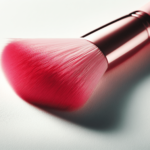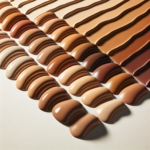If you’re on a quest to find the ultimate protection for your precious facial skin under the sun, look no further. The search for the best sunscreen for your face can be overwhelming with endless options available in the market. But worry not! In this article, you’ll discover all the information you need to make an informed decision about the ideal sunscreen that will keep your face safe, healthy, and glowing no matter the time of year. You deserve the best, and we’re here to guide you in finding the perfect match for your skin’s needs.
Factors to Consider
Protecting your skin from the harmful effects of the sun is essential to maintaining healthy and youthful-looking skin. With so many options available in the market, choosing the best sunscreen for your face can be overwhelming. That’s why it’s important to consider a few key factors that can guide you towards making the right choice. By considering the SPF level, broad spectrum protection, physical vs chemical sunscreens, and your skin type, you can find the perfect sunscreen that suits your needs and keeps your skin looking its best.
SPF Level
Understanding SPF
SPF, or Sun Protection Factor, is a measure of how well a sunscreen protects your skin from the sun’s harmful ultraviolet (UV) radiation. It primarily measures the sunscreen’s ability to protect against UVB rays, which are responsible for sunburns. The higher the SPF level, the greater the protection provided.
Recommended SPF for Face
For optimal protection, experts recommend using a sunscreen with an SPF of at least 30 for your face. This level of protection allows you to spend more time in the sun without getting burned. However, keep in mind that no sunscreen can offer 100% protection. It’s also important to remember that SPF levels above 50 provide only a negligible increase in protection.
SPF and UVB Protection
UVB rays are the primary cause of sunburns and play a major role in the development of skin cancer. Sunscreens with higher SPF levels provide better protection against UVB rays. A sunscreen with an SPF of 30 blocks about 97% of UVB rays, while an SPF of 50 blocks about 98%. So, it’s crucial to choose a sunscreen with a high enough SPF level to protect your skin from these harmful rays.
SPF and UVA Protection
UVA rays penetrate the skin more deeply than UVB rays and are responsible for premature skin aging, wrinkling, and some forms of skin cancer. While SPF primarily measures a sunscreen’s UVB protection, it doesn’t indicate the level of UVA protection. To ensure you’re adequately shielded from both types of rays, it’s important to choose a sunscreen labeled “broad spectrum.”
Broad Spectrum Protection
Importance of Broad Spectrum
Broad spectrum sunscreens provide protection against both UVB and UVA rays. This is important because while UVB rays are more intense and play a major role in causing sunburns, UVA rays can penetrate the skin more deeply and contribute to long-term skin damage. By using a broad spectrum sunscreen, you’ll safeguard your skin against both types of harmful rays.
How to Identify Broad Spectrum Sunscreens
To identify whether a sunscreen offers broad spectrum protection, look for labels or claims that explicitly state “broad spectrum” or “UVA/UVB protection.” Additionally, check if the product has received the Seal of Recommendation from the Skin Cancer Foundation, as this indicates that the sunscreen meets their stringent requirements for broad spectrum protection.
Physical Sunscreens
How Physical Sunscreens Work
Physical sunscreens, also known as mineral sunscreens, work by creating a protective barrier on the skin’s surface. They contain active ingredients like titanium dioxide and zinc oxide, which reflect and scatter UV rays away from the skin. This physical barrier blocks both UVB and UVA rays, providing broad spectrum protection.
Benefits of Physical Sunscreens
One of the key advantages of physical sunscreens is that they start working immediately upon application. There’s no need to wait for the sunscreen to fully absorb into the skin before going out in the sun. They’re also less likely to cause skin irritation, making them a great option for those with sensitive skin. Additionally, physical sunscreens are effective at blocking visible light, which can be beneficial for individuals prone to melasma or hyperpigmentation.
Drawbacks of Physical Sunscreens
One of the main drawbacks of physical sunscreens is that they tend to leave a white cast on the skin, especially on darker skin tones. This can make them less desirable for cosmetic reasons. They also have a thicker consistency compared to chemical sunscreens, which can make them feel heavier on the skin. However, recent advancements in formulation have led to the development of physical sunscreens that are more cosmetically elegant.
Chemical Sunscreens
How Chemical Sunscreens Work
Chemical sunscreens work by absorbing UV rays instead of reflecting them. They contain organic compounds such as avobenzone, oxybenzone, and octinoxate, which undergo a chemical reaction when exposed to sunlight. This reaction changes the energy of the UV rays into heat, which is then released from the skin.
Benefits of Chemical Sunscreens
One of the main benefits of chemical sunscreens is their lightweight and non-greasy texture, making them easier to incorporate into your daily skincare routine. They also tend to be more transparent on the skin compared to physical sunscreens, which can be appealing for those who dislike the white cast sometimes associated with mineral sunscreens. Additionally, chemical sunscreens offer a wide range of products with different formulations to suit various skin types.
Drawbacks of Chemical Sunscreens
Chemical sunscreens may cause skin irritation or allergic reactions in some individuals, particularly those with sensitive skin. Some chemical filters, such as oxybenzone, have also raised concerns about potential hormone disruption. However, it’s important to note that the majority of studies have not shown any significant health risks associated with the use of chemical sunscreens.
Skin Type
Understanding your skin type is crucial when choosing the best sunscreen for your face. Different skin types have varying needs and considerations when it comes to sun protection.
Normal Skin
If you have normal skin, you’re in luck as you have a wide range of sunscreen options available to you. Look for sunscreens that offer broad spectrum protection and are compatible with your other skincare products.
Dry Skin
For individuals with dry skin, it’s important to choose a sunscreen that hydrates and moisturizes the skin. Look for sunscreens that contain ingredients like hyaluronic acid or ceramides, which help retain moisture and prevent further drying.
Oily Skin
If you have oily skin, opt for oil-free or mattifying sunscreens that won’t clog your pores or leave your skin feeling greasy. Look for lightweight and non-comedogenic formulas that provide a mattifying effect to control shine.
Sensitive Skin
Those with sensitive skin should choose sunscreens that are fragrance-free and hypoallergenic to minimize the risk of irritation. Look for gentle formulas that are specifically designed for sensitive skin types.
Additional Considerations
Fragrance-Free
If you have sensitive skin or are prone to allergies, it’s a good idea to choose a sunscreen that is fragrance-free. Fragrances can often cause skin irritation and allergic reactions, so opting for a fragrance-free sunscreen reduces the risk of any adverse effects.
Water Resistant
If you’ll be spending time in the water or engaging in activities that cause perspiration, consider using a water-resistant sunscreen. These sunscreens provide extra protection and are less likely to wash off. However, it’s important to reapply them after swimming or sweating to maintain their effectiveness.
Non-Comedogenic
For individuals prone to acne or with oily skin, choosing a non-comedogenic sunscreen is essential. These sunscreens are specifically formulated to not clog pores, reducing the likelihood of breakouts. Look for the “non-comedogenic” label when shopping for sunscreen products.
Dermatologist Recommended
Consider seeking recommendations from dermatologists or skincare professionals. They can provide valuable insights and suggest specific sunscreen products that are well-suited to your skin type and concerns. Dermatologist-recommended products often undergo rigorous testing to ensure they meet high standards of efficacy and safety.
Application Tips
Use Generous Amounts
To ensure adequate protection, apply sunscreen generously to your face. Experts recommend using about a teaspoon (about 5 milliliters) of sunscreen for the face. Don’t forget to cover all areas exposed to the sun, including the ears, neck, and any other areas that are not covered by clothing.
Reapplication
Remember to reapply sunscreen every two hours or more frequently if you’ve been swimming or sweating. Even water-resistant sunscreens can lose their effectiveness, so it’s important to reapply regularly to maintain optimal protection throughout the day.
Primer or Makeup Compatibility
If you wear makeup or use a primer, choose a sunscreen that is compatible with these products. Some sunscreens are specifically designed to be worn under makeup, while others can double as a primer. Look for lightweight, non-greasy formulas that won’t interfere with the application or longevity of your makeup.
Layering with Skincare Products
Consider how the sunscreen will interact with your other skincare products. If you use serums, moisturizers, or other facial products, ensure that the sunscreen will work well in conjunction with them. Some sunscreens may cause pilling or interfere with the absorption of your other skincare products, so it’s important to choose products that work harmoniously together.
Popular Sunscreen Brands
With a multitude of brands available, it can be helpful to know a few popular options that consistently receive positive reviews and are trusted by consumers. Here are some well-known sunscreen brands worth considering:
Neutrogena
Neutrogena is a widely recognized brand known for its high-quality skincare products. Their sunscreens offer a variety of options for different skin types, and they provide broad spectrum protection.
CeraVe
CeraVe is a dermatologist-recommended brand that focuses on developing products suitable for sensitive skin. Their sunscreens are formulated with ceramides, which help to restore and maintain the skin’s natural barrier.
La Roche-Posay
La Roche-Posay is a French skincare brand known for its dedication to developing products with high tolerability for sensitive skin. Their sunscreens offer advanced UVA and UVB protection and are suitable for a variety of skin types.
EltaMD
EltaMD is a brand recommended by dermatologists and offers a range of sunscreens suitable for all skin types. Their sunscreens are formulated with zinc oxide, providing broad spectrum protection.
Supergoop!
Supergoop! is a clean beauty brand that focuses on creating sunscreen products that are safe for both your skin and the environment. They offer a wide range of sunscreens and also cater to specific concerns such as anti-aging or oily skin.
Conclusion
Choosing the best sunscreen for your face is an important decision that should be based on various factors. By considering the SPF level, broad spectrum protection, physical vs chemical sunscreens, and your skin type, you can make an informed choice that suits your individual needs. Remember to prioritize broad spectrum protection, and don’t hesitate to seek recommendations from dermatologists or skincare professionals. With the right sunscreen, you can enjoy the sun while keeping your skin healthy, protected, and looking its best.




